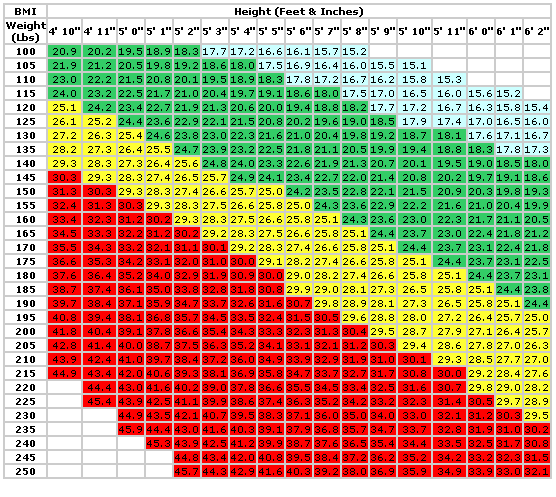I'm currently 5'9", 262.8 at last weight in (about 10 days ago). I'm still cutting, by no means am I 'obese', although that's what my BMI says. I have plenty muscle mass, but to be honest I could stand to lose a few pounds (got married, stop lifting, etc). At my best physique I was between 175-195, and BF% floated between 7-10%.
The downside of that is, according to the blanket bmi chart 
I'm dangerously obese, and even at my top physique I not even close to the target range (160 is definitely out of the question).
My health insurance provider (among other companies) regard BMI as the end all be all of healthiness, which is certainly not the case. So, my question is: Has anyone been able to talk with these companies regarding this? I know I'm taking a chance with this being off topic, and that's fine (we need off topic examples anyway) but I know I'm not the only person in this dilemma.